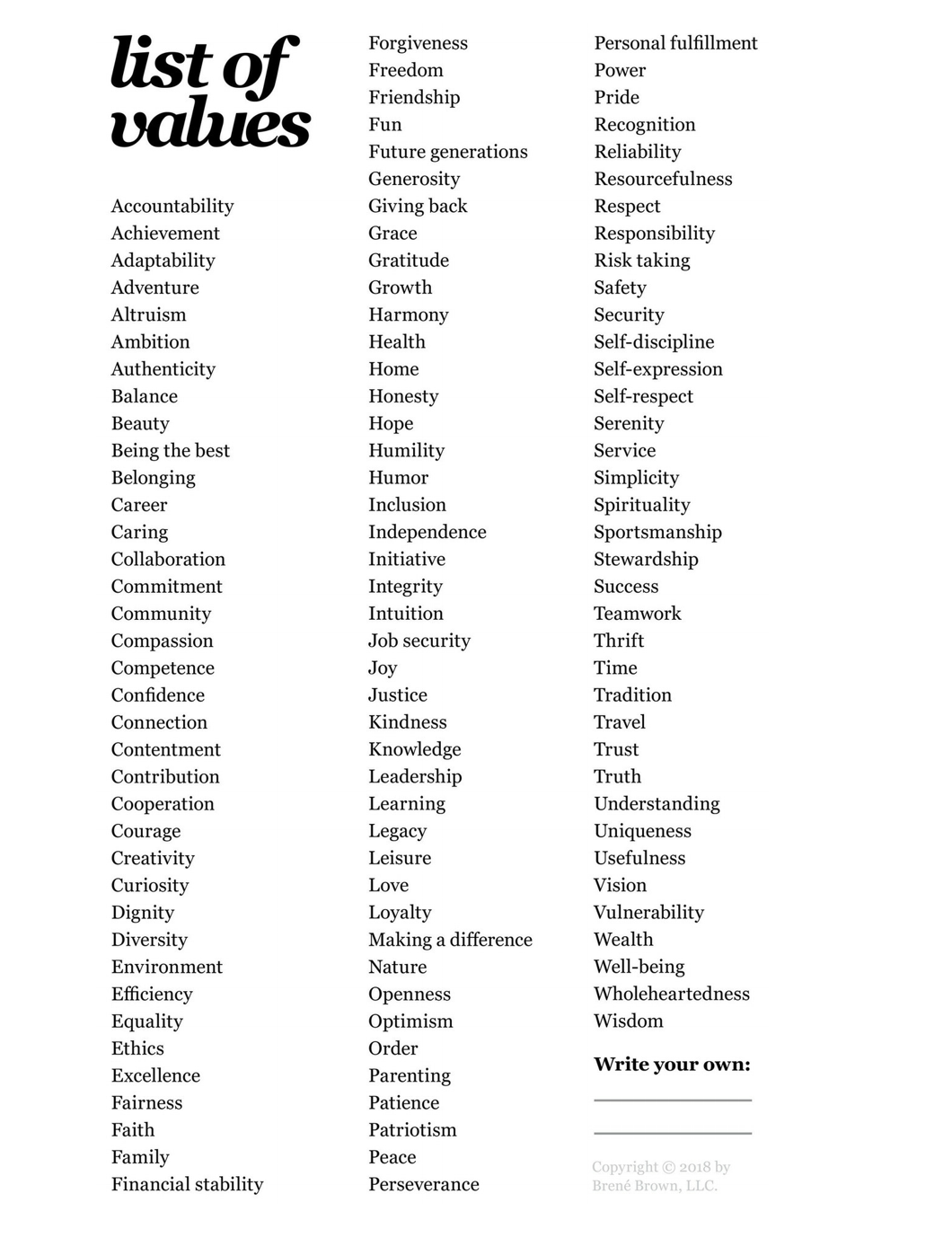It's not just companies that have values. People have them too (whether we realize it or not).
Our values are what we use when evaluating big decisions, and they determine how we sit with the consequences of those decisions. Should I go back to grad school? Should I move cities? Should I propose to my partner?
However, what we often don’t do is do this intentionally. We internalize values at a subconscious level and they surface as gut feelings. For the most part, we don’t use them with intent.
By really understanding your values, you can turn these gut feelings into an intentional framework you can use for evaluating decisions and behaviors. Your values can be your north star, your guiding principles, and the bedrock of how you live your life.
Understanding your values
Rather than intentionally going out and choosing your values, you already have a set of values derived from the melting pot of your life experiences, upbringing, mentors, and a whole lot of other sources. You simply have to dig into whatever’s there.
Figuring out which values most resonate with you is a fascinating process, since often you will discover interesting contradictions and hierarchies between your chosen values.
"My two values are growth and freedom. I define growth in terms of a journey of self discovery, and freedom as the ability to forge my destiny on my own terms. I’ve found that values I thought were fundamental to me, like happiness, are actually derivations of my two core values. I can’t be happy unless I am also free and growing. What’s interesting is that these two values are often at odds with each other. A large amount of freedom can result in little growth, and vice versa. Plotting a path between the contradictions of the two is part of what makes life interesting."
- Alex MacCaw
Take a look at the list of values below from the book Dare to Lead (and by all means, add to these). Now whittle down this list and pick two values that resonate the most with you. You may find that there’s a hierarchy and that one value is derived from another. In these cases, pick the higher-ranking value.
Why only two? Well, if you have more than a few priorities, you have no priorities. At some point, if everything on the list is important, then nothing is truly a driver for you. It’s just a shallow list of feel-good words.
The other thing to realize is that there’s no difference between personal and professional values. When it comes to something as fundamental as our values, one can’t live a bipolar life.

Whittling down a list of values can work well, but it's not the right technique for everyone. Eric Feldman suggests a different approach based on analyzing major life experiences.
Living into your values
Now you’ve picked your values, it’s time to think about behaviors that are in and out of integrity with these values.
Write down three behaviors that support each value, and three slippery behaviors that are outside this value. To get you started, we've listed an example below:
Three behaviors that support Freedom:
- Forging my own path and being curious - see the systems, learn from them, choose pieces that work for me, and walk away from the rest.
- Putting together life plans and goals. Putting up boundaries.
- Being vulnerable. Having confidence in my weird and kinky self.
Three slippery behaviors that are outside Freedom:
- Going with the conventional route just because it’s “blessed.”
- Using substances/alcohol excessively just to be comfortable in social situations.
- Placing value in social pecking orders and hierarchy.
Lastly, write down three examples of situations where you were fully living each value and three situations when you weren’t. These might be painful to think about, but understanding how your values apply to real-world scenarios will help you live by them.
Living into our values means that we do more than profess our values, we practice them. A value-led life is a life driven with purpose and integrity. Once you have this incredible toolbox, you will be well equipped to deal with decisions, knowing that you will make choices consistent with what’s ultimately important to you.